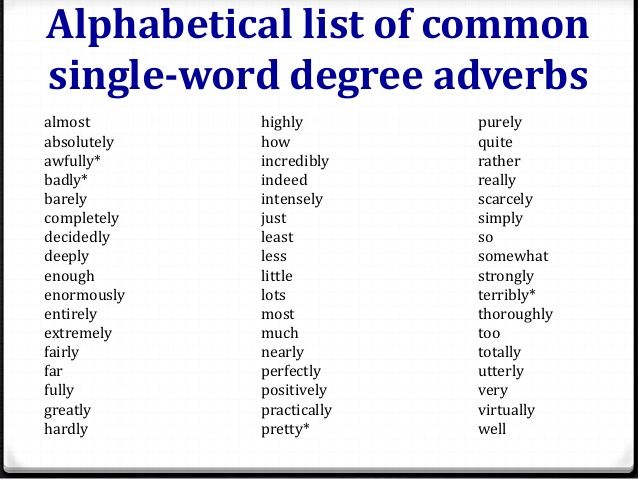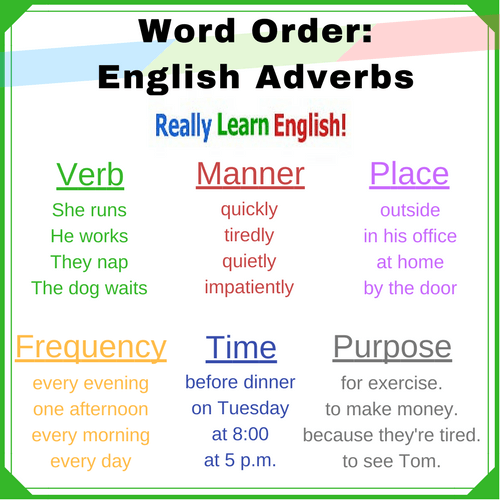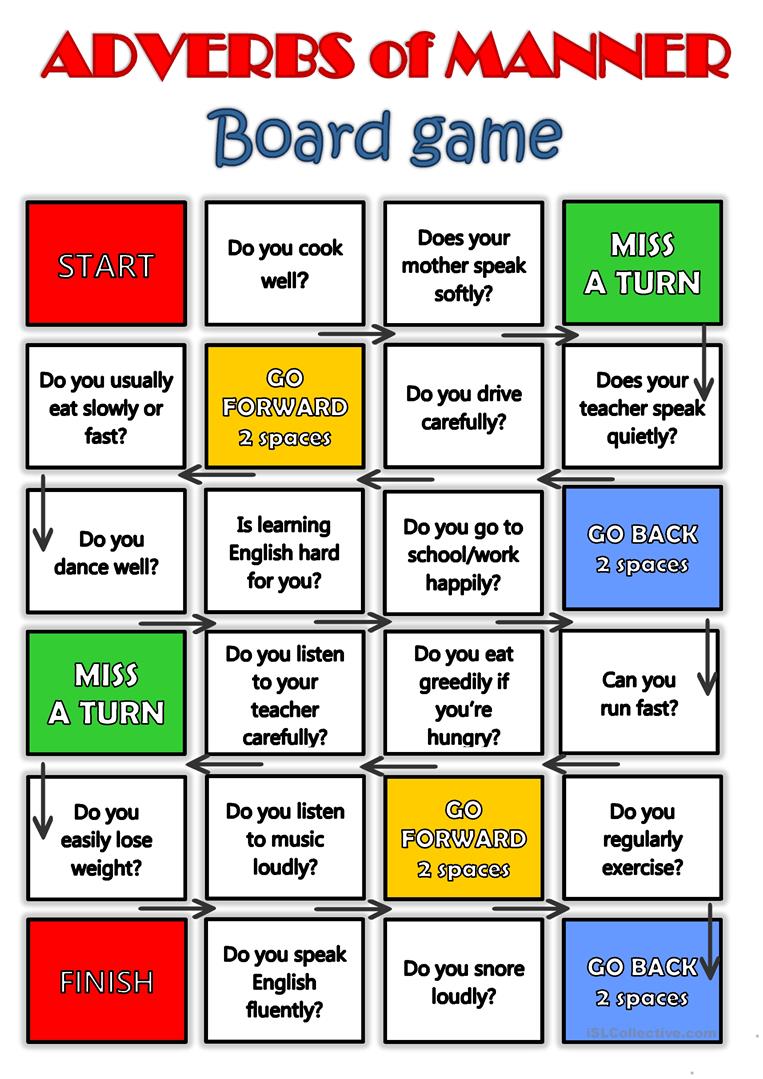The adverbs and the adjectives in English
Adjectives qualify nouns.
Adverbs qualify actions. Adverbs can modify verbs, adjectives or other adverbs.
| Eva is a careful girl ➫ adjective | Eva drives carefully ➫ adverb |
Difference between an adjective and an adverb
I am a slow driver ⮞ How am I? ➱ slow ➫ adjective
I drive slowly ⮞ How do I drive? ➱ slowly ➫ adverb
➣Adjective when you indicate something about the noun
➣Adverb when you indicate something about the verb
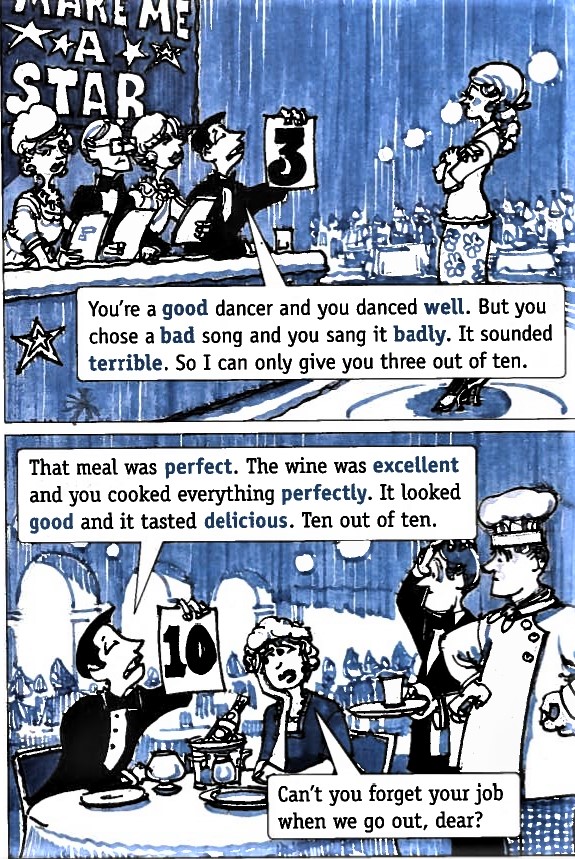
reference: English for Life Pre-Intermediate Oxford
NOTE : After the verbs ➣ be ➣ look ➣ taste ➣ sound ➫there is an adjective ➬NOT an adverb
The meal was perfect ➬NOT perfectly
It sounded terrible ➬NOT terribly
Adverbs and adjectives that have the same form
| close | daily | early | fair |
| far | fast | hard | high |
| late | long | low | right |
| wide | wrong |
Form: Adjective + -ly
| adjective | adverb |
|---|---|
| dangerous | dangerously |
| safe | safely |
| happy | happily |
| horrible | horribly |
| easy | easily |
| literal | literally |
| shy | shyly |
| GOOD | WELL |
➣BE CAREFUL He is a good cat but he does not feel well
➣BE CAREFUL NOT all words ending in -ly are adverbs:
- adjectives ending in -ly: curly, chilly, friendly, elderly, silly, lonely, ugly, lovely, lively
- nouns, ending in -ly: butterfly, family, jelly, ally, bully, melancholy
- verbs, ending in -ly: apply, rely, reply, supply, comply, imply
Used:
➣ to modify verbs
The team played badly.
I want to live intensely.
➣ to modify adjectives
It was an extremely bad match.
I feel rather ashamed.
➣to modify adverbs
Mark behaves utterly well.
There are quite a lot of people.
➣ to modify sentences
Unfortunately, the flight has been cancelled.
Suddenly, the lights went out.
Types:
Adverbs of frequency
They answer how often something happens.
- always
- frequently
- usually
- often
- sometimes
- occasionally
- rarely
- hardly ever
- seldom
- never
These adverbs go before the verb.
| Subject | auxiliary | adverb of frequency | verb |
|---|---|---|---|
| He | never | gets up early | |
| They | can | often | do it |
| I | do not | always | go there |
BUT after verb to be
| Subject | verb to be | adverb of frequency |
|---|---|---|
| Sue | is | seldom late |
Adverbs of time
They answer when something happens.
| now | daily | soon | since | eventually |
| then | weekly | early | just | finally |
| today | fortnightly | late | already | lately |
| tonight | monthly | last | yet | formerly |
| tomorrow | yearly | first | still | recently |
| yesterday | annually | next | previously | |
| before | ||||
| after |
Adverbs of place
They answer where something happens.
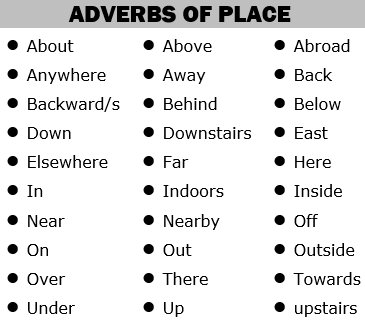
Adverbs of manner
They answer how something happens.
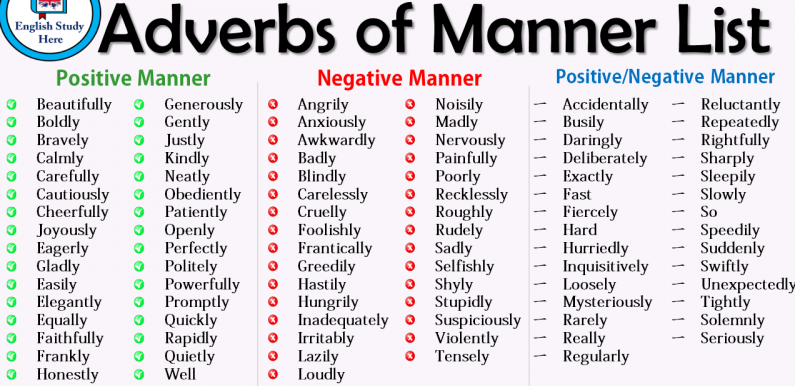
Adverbs of degree
They answer how much something happens.
